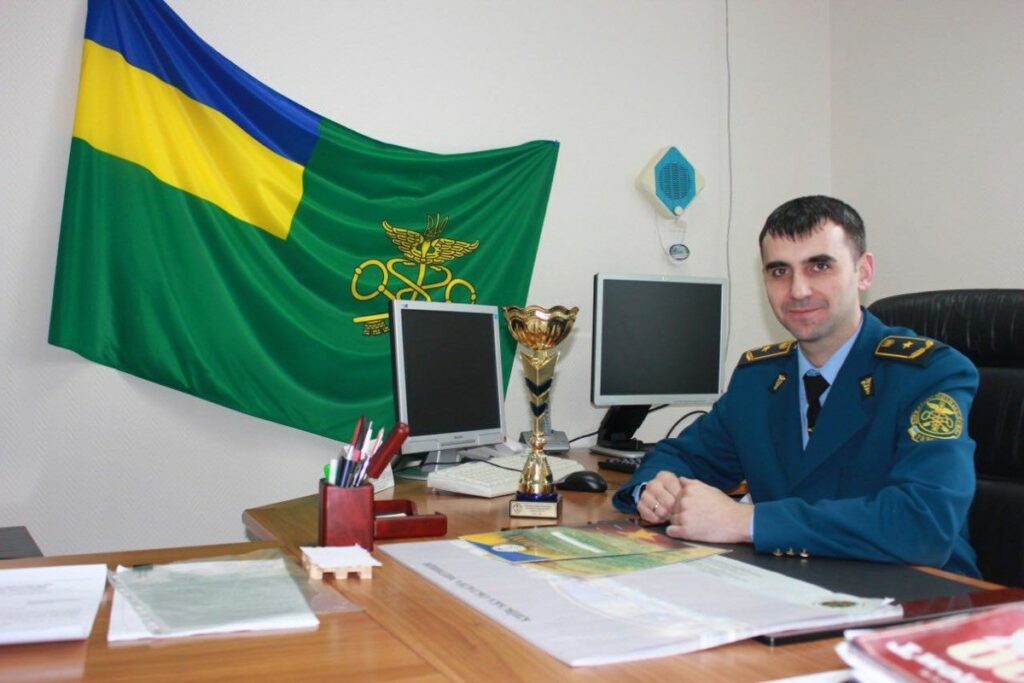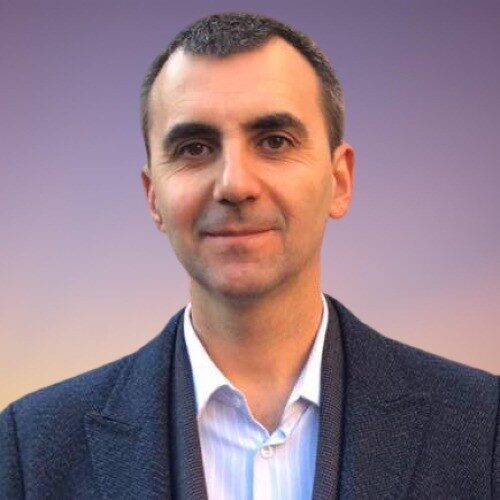If a certain activity no longer drives you,, something needs to be changed, believes Dmytro Lukashenko, Junior Frontend Developer at Levi9. Having served 19 years at the State Customs Service, he studied to become a rehabilitation therapist and now writes code at Levi9. Here is his story.
At first, there were computers
For as long as I can remember, I was never afraid to learn something new and try out different roles. And one passion from school stayed with me – I was fascinated by programming and everything related to computers. As a result, I pursued a degree in Computer Systems Engineering, but I didn’t end up working in that field. Instead, I found myself in customs.
I served in the State Customs Service of Ukraine for 19 years, and in 2013, I obtained a specialist diploma in law from the National Academy of Internal Affairs.
Additionally, I was interested in the capabilities of the human body and its overall functioning. Since childhood, I was drawn to martial arts, and in university, I took up Vietnamese martial arts following the Viet Vo Dao Hai Ngoai system. I wanted to have more in-depth knowledge rather than just being an amateur. I enrolled in the National University of Physical Education and Sport of Ukraine, and in 2022, I received a degree as a rehabilitation specialist.
During my years in the customs service, there were ups and downs, but I have no regrets because I gained tremendous teamwork experience, discipline, a habit of continuous learning and self-improvement, and I also met amazing people. I am still grateful to them and we maintain our connection.
Radical change
At least once in life, everyone has to make an important and life-changing decision. In my case, at the age of 42, I transitioned into IT. This decision was driven by the state of affairs and processes within the customs authorities – constant reformation, lack of development, and no future prospects for me as a specialist. The choice was influenced by my passion for programming and my previous education as a computer engineer. Ultimately, I decided to dedicate myself to a field that I had previously pursued as a hobby – frontend development.
The daily routines of an IT professional and a customs officer are radically different – in terms of work schedules, dress code, reporting systems, communication, and training. Each role has its own difficulties and easiness.
By the way, within the structure of the State Customs Service, there is an IT Department with highly skilled developers. However, the similarity lies in the fact that both roles require constant development and self-improvement. In IT, you learn about development technologies, while in the customs service, you study regulatory documents. If you stop progressing, you regress. And in both fields, you are responsible for the results.

First steps in IT
Among all IT specializations, I chose frontend because I had already been building websites using HTML and CSS. Plus, I enjoy seeing the visual and tangible results of my work.
I started by researching job opportunities in frontend and the requirements for specialists. I immediately found plenty of opportunities for self-learning. For instance, I completed several free marathons on HTML, CSS, and JavaScript, and subscribed to several IT channels on YouTube. The materials provided by “Maxim Grom” and “Freelancer for Life” were particularly helpful.
Mastering the profession turned out to be more challenging than I expected. I have been in IT for over eight months now, and initially, I had the illusion that I could learn HTML, CSS, and JS in just a couple of months. That turned out to be impossible, so I needed to acquire more fundamental knowledge.
I decided to become a student again and developed a strategy for entering the IT field with three steps:
- Completing educational courses of FrontEnd-React-Dev.
- Preparing my resume and registering on web resources for IT job search.
- Going through interviews and getting an offer.
I paid attention to the 6-month frontend program at Levi9 Academy, which included the history of WEB development, GIT, HTML, CSS, JavaScript, React/Angular. Moreover, the top graduates had the opportunity to join project teams at the company.
I enjoyed doing homework and attending lectures. The learning process was exciting, and offline meetings of students with mentors at Levi9’s office in Kyiv, as well as shared activities such as a New Year’s party and team-building in Bukovel, added motivation not to give up.
During the learning process, when it was time to choose a JS framework for further study, my mentor recommended switching from React.js to Vue.js. That’s how I started learning Vue.js, and later, I mastered Nuxt.js as well. I used it to create my final course project, ‘Song Quiz’.
It involved working with video and audio data, dynamic styles, and fetching information from an API. The most interesting and challenging part was customizing the <audio> tag in HTML with my own styles.
Towards the end of the training, the most challenging part was understanding what knowledge was needed to pass the interview and get an offer. We also discussed this during lectures. I absorbed the lessons well, so after defending my course project and going through a technical interview, I became a Levi9er and a Junior Vue.js Developer at Levi9.
Obstacles and support
After a career change, it takes time to adapt to new conditions, regardless of the field. There were multiple occasions when I wanted to quit learning and abandon the idea of changing my profession. However, each time I found reasons to continue.
Motivation is crucial when acquiring new skills. Learning is a long-term process, and it’s easy to lose sight of the goal without achieving results.
Even when I started working on real development projects, the difficulties didn’t diminish. IT is a constant challenge.
There is still a lot for me to learn, but I don’t neglect the importance of taking breaks. It’s difficult, but I make sure to recharge and know when to pause. For me, the best form of relaxation is an active one. I love hiking, trekking, extreme sports, martial arts, and playing the guitar.
At home, my family supports me at every stage, especially my wife Victoria. From the beginning, she understood how important it was for me to focus on learning and dedicate maximum time to honing my technical skills. This understanding greatly helped me during these six months. At work, my colleagues provide me with moral support. They have a positive attitude towards imperfections, mentor me, and share advice. One of their suggestions is not to get nervous, to calm down, and understand that technical documentation, specifications, and Google can provide answers to any question.
I plan to continue my development in frontend. It’s just the beginning for me—I’m moving towards becoming a Medior and beyond.

Advice for beginner IT professionals
Based on examples from colleagues and my own experience, I know that people encounter similar mistakes and fears on the path to a career change. I would like to share some observations of what not to do:
- It's not advisable to pursue multiple directions simultaneously. For example, FullStack development has become popular, and beginners are rushing into it, abandoning their previous learning halfway. Each field requires processing a lot of information, and the time invested may not yield the desired results. It's better to focus on one direction and thoroughly master the necessary technologies.
- It's better to stay in your current position until you receive a real offer from an IT company. None of the course organizers can guarantee employment upon completing the training. It's not wise to be presumptuous.
- It's important to have an upper Intermediate level of English proficiency before starting work in your desired position. Don't postpone improving your English skills for too long.










